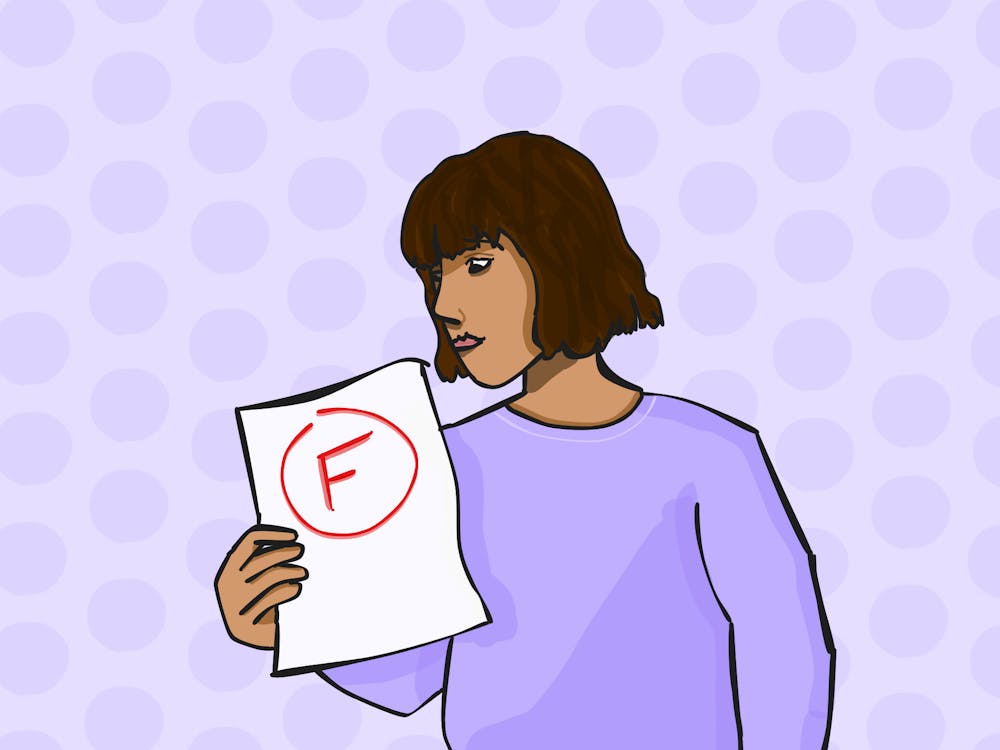I have seen plenty of relationshipfights in my 21 years of life. Two people get in a fight and hold out on the "I'm sorry" until both have sufficiently complained about one another, as loudly as they can and with as many text messages as necessary (if the two are separated). Personally, I think it's a healthy thing to open up every once in a while.
So, when most couples have it out, the guilty party apologizes and the world keeps spinning. But sometimes, forgiveness is not so easily granted, and even if it is, it is not the most genuine of forgivenesses. So, I wonder why all of us, myself included, like to say we are sorry or accept an "I'm sorry" even when we don't mean it.
Whether your sister accidentally leaves your front door open and your dog runs away or your boyfriend decides to date your friend instead of you, all of us have felt betrayed, hurt and in some cases angry.
Every person will also say you need to forgive and forget. But my question is: How often do we really forgive and why is it, by its very nature, so hard?
Every religion and culture has maxims as to how to deal with forgiveness, probably because it's hard to do but necessary to a happy and fulfilling life. Christians are encouraged to turn the other cheek. Buddhists hope to detach from the world so much that even the potential to be hurt no longer exists and in this way, compassion reigns. Yet, no matter your religion, there is the strong chance that none of us has this forgiveness thing down quite yet.
We act like we have spent our lives forgiving others for their hurtful behaviors or ourselves for hurting others. But every time we become angry (maybe too angry) at a person who has hurt us in the past, we realize that the anger may come from a place of non-forgiveness, of holding it in. This temptation to forget (or try to) before we even forgive is only going to make us slaves to other's mistakes.
Kids of divorce probably recognize this feeling, though every situation differs. They often try to get over the pain and betrayal they feel quickly, only to note years later in varying circumstances that who and what they thought they had forgiven is creeping back into their present relationships and fears.
Not to pick on divorce only, but we will all sometime be a situation of vulnerability and probable hurt. A friend can ditch you for a movie to hang out with her boyfriend. A boyfriend can stand you up for a date because the game is on.
But maybe the hardest part of forgiveness is when it is not asked for by those who hurt us -- the boyfriend who broke our hearts and never said "I'm sorry" for hurting us; the parents who either don't want to admit or don't know that their words or actions have burdened no one but us for so many years; or, in some cases, a heavenly being who is supposed to be in charge down here and yet everything seems too messed up.
Maybe forgiveness is tough to give or get because we are fairness-loving, amnesiac people. When we get hurt, we often resent the circumstance because it is not fair and do not want to forgive. We ask, "Why did this person or that incident have to happen to me?" And we are amnesiac in that we forget that we, too, no matter how hard we try or don't try, are often responsible for someone else's hurt.
One of the best professors I ever had taught a Buddhist meditation class. He told us that the goal in life should not be justice or revenge but an understanding that every single person deserves compassion. Being able to say, "I know that he is only trying to be happy" and recognizing he is doing the best he or she can with what they have, we can get to a place where we can forgive and be forgiven in the few or many mistakes we make.
I will say my old Buddhism professor doesn't always come to mind when my I am in the hurt and sadness of a given situation. Eventually, though, and often in a timely manner, I remember him. And maybe that's the point: The "forgive and forget" philosophy might need to be changed.
Instead, maybe we need to remember to forgive.
Callan's column runs bi-weekly on Tuesdays. She can be reached at blount@cavalierdaily.com.






